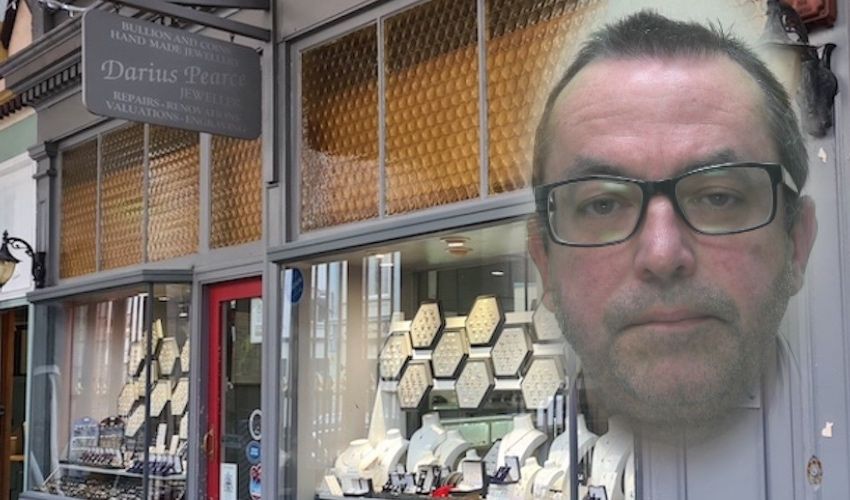


A jailed jeweller, who decided to be his own lawyer, says he wants to take his case to a higher court after failing to convince the Court of Appeal that his conviction for laundering the money of a gang involved in a £1m drugs plot should be overturned.
After Darius Pearce appeared before them on Monday, the Court of Appeal this morning handed down a judgment rejecting every single one of the 49-year-old's arguments.
Pearce was convicted of three counts of money laundering on behalf of an enterprise that tried to smuggle £919,000-worth of cocaine, ecstasy and cannabis into Jersey in June 2019 after a six-day trial in December 2020.
Pearce was alleged to have used his business to receive criminal cash and buy gold bullion.
He was the only suspect to maintain his innocence while the seven members of the gang caught by ‘Operation Lion’ pleaded guilty to various offences for which they were sentenced in by the Royal Court in September 2020.
On Monday, he appeared before the Bailiff Tim Le Cocq, James McNeill QC and Lord Anderson of Ipswich, arguing there was no case to answer on the charge of money laundering and that he had been denied legal representation because of the “unlawful” actions of the police.
He also sought leave to appeal his sentence which he claimed had been manifestly excessive and disparate from the ones handed to other members of the gang.

Pictured: Members of the drugs ring Pearce had been associated with, were jailed in September 2020.
Handing down their judgment this morning, the Court of Appeal rejected all of the arguments made by Pearce.
Lord Anderson said the judges had “carefully” considered all the grounds of appeal submitted.
He said the Court had “no hesitation” in rejecting Pearce’s claim that there was no case to answer, describing his arguments as “almost incomprehensible”.
He said it was “entirely open” for the Jurats in the trial to conclude Pearce had made the use of the gang’s money easier and that the evidence was strong enough for them to convict of money laundering.
The Court also rejected Pearce’s claim he had been denied legal representation with the judgment noting how he had a “long history of choosing to represent himself” despite encouragements from the Court and nonetheless received the help of two lawyers under the legal aid scheme.
They said Pearce had made the decision to fight his case on his own freely and that complaining about the consequences of this choice was an “unenviable position”.

Pictured: Pearce is currently serving a seven-and-a-half years sentence.
The Court also noted that, contrary to what Pearce had claimed, there was no suggestion he lacked mental capacity during the trial although a psychiatric expert said he had been abusing alcohol at that time.
The judges also said Pearce had failed to show how he had been disadvantaged by the Court’s decision to refuse an amicus curiae to help him “collect his thoughts”.
They also added he had failed to prove the unlawfulness of the 'saisie' of his banks accounts - a way of restraining assets - and noted that he had given permission for his personal and company accounts to be accessed by the police, and that even if the saisie had not taken place he would not have been able to pay for legal representation with the £9,000 he had at the time.
The Court of Appeal also rejected Pearce’s bid to appeal his sentence. They said the approach taken by Commissioner Julian Clyde-Smith was not wrong and had dealt with the correct principles “fairly and on a reasonable basis”.
They rejected Pearce’s view that his sentence had been disparate to that of other defendants in the case, but the Court of Appeal said one of the individuals he referred to was not a “skilled courier” and that her involvement in cash runs was not the “multi layered and sophisticated service” Pearce had provided under the cover of his business.
After his appeals were rejected, Pearce indicated his wish to appeal to a higher court, the Privy Council. He will have to make an application at a later date.
Comments
Comments on this story express the views of the commentator only, not Bailiwick Publishing. We are unable to guarantee the accuracy of any of those comments.